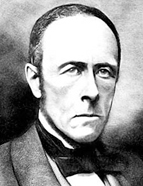

História de Portugal was preceded by a more episodic publication where Herculano described the guiding principles of his interpretation of Portuguese social and political history: Cartas sobre a História de Portugal [Letters on the History of Portugal], published in 1842, in Revista Universal Lisbonense [the Lisbon Universal Review]. The most elementary feature of this interpretation is the division of Portuguese history into two major cycles, the former of which ranges from the foundation of the kingdom up to the sixteenth century, when the latter cycle begins. Overall, Herculano views the former cycle as positive, particularly in terms of what he regards as the decentred nature of the distribution of medieval political power, where royal prerogatives are balanced by the presumed power of the local councils. His argument, largely related to to such specificity, that feudalism did not exist in Portugal, is already apparent in this text and is sustained right up to his last writings. On the other hand, Herculano views the latter cycle from a very negative perspective. He disapproves of the centralisation of powers in the monarch, a figure he perceives as being at the root of proceedings that point to political and cultural decadence, such as the advance of the Inquisition and colonialism. He even suggests that the study of post-medieval Portugal of the sixteenth to eighteenth centuries is worthless in that it was not much given to the historiographical extraction of “social wisdom”, and it might even be better forgotten than remembered (“Cartas sobre a história de Portugal”, 162-163).
From a methodological point of view, it should be noted that in that very same text Herculano voices his criticism of an overly fact-based understanding of national history. Strongly inspired by the arguments of Augustin Thierry, Herculano highlights the need for accounts that go beyond the narration of political events and the biography of prominent figures to comprehend institutions and other phenomena of a social character in their scope of interpretation. (“Cartas sobre a história de Portugal”, 138-142). Since his Cartas, Herculano had devoted most of his attention to individual personalities and unique events. However, his approach was marked by the enhancement of primary sources and the increased use of different critical and documental interpretation techniques, often putting him on a collision course with traditionalist and mythical interpretations of the Portuguese past (Matos, Consciência história e nacionalismo [History, conscience and nationalism], 18-20).
Herculano saw himself as the continuer of a tradition whose origins he himself projected onto the second half of the seventeenth century, in the works of Benedictine scholars, the most renowned of whom was Jean Mabillon – a landmark figure in the history of diplomatics and palaeography (“Solemnia verba”, 69-77).
